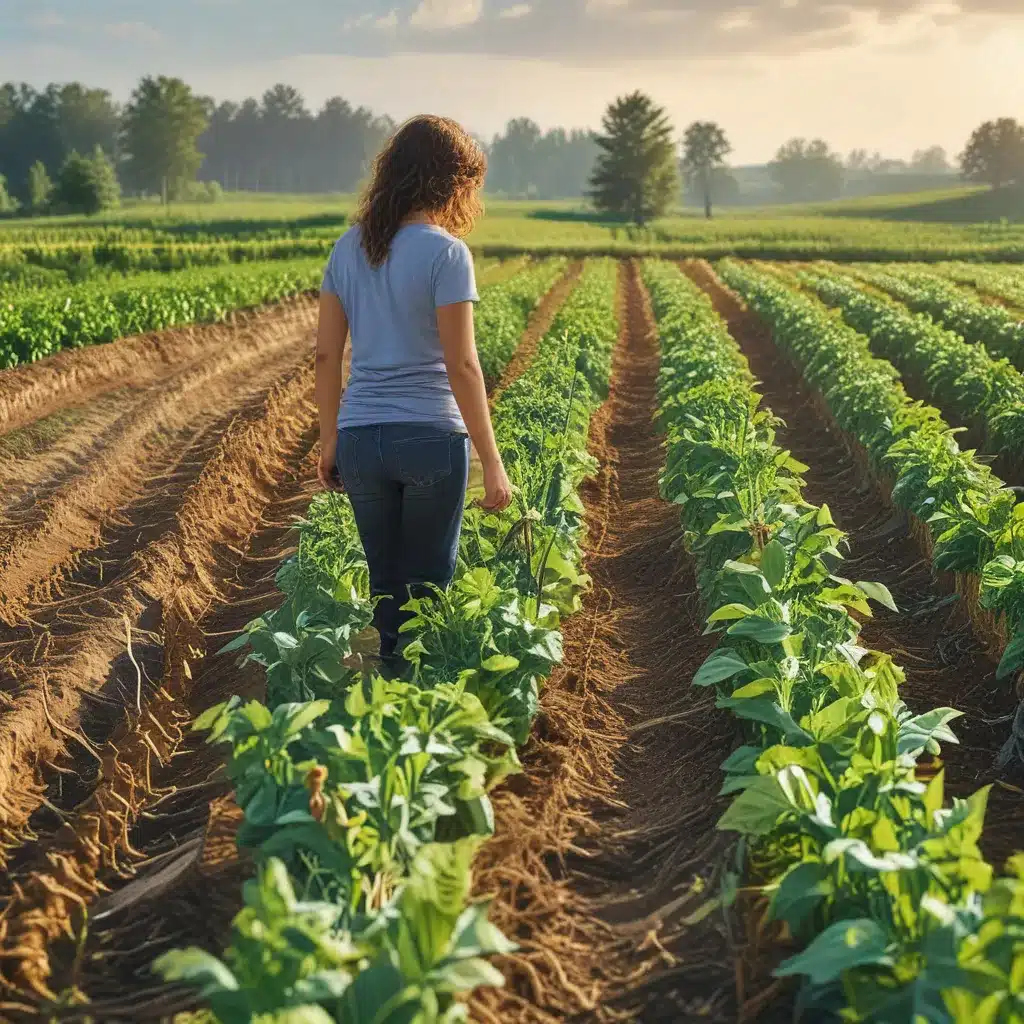
The Unsustainable Realities of Industrial Agriculture
As I stand here, surrounded by the vibrant greens and earthy aromas of the Thornapp le CSA farm, it’s hard to imagine that our modern food system is on the brink of collapse. But the truth is, the energy-intensive, chemical-laden practices of industrial agriculture have put our planet and our health in grave danger.
According to the Union of Concerned Scientists, climate change is one of the most devastating problems humanity has ever faced, and the clock is ticking. Our current food production methods are a significant contributor to this crisis, with industrial farms gobbling up vast swaths of land, depleting precious resources, and pumping tons of greenhouse gases into the atmosphere.
It’s a sobering reality, but there’s hope on the horizon. A growing movement of innovative farmers and scientists are revolutionizing the way we grow our food, embracing sustainable practices that work in harmony with nature, not against it. And if we all do our part, we can cultivate a healthier tomorrow.
The Agroecological Approach to Sustainable Farming
At the heart of this sustainable farming revolution is the concept of agroecology – the science of managing farms as ecosystems. Instead of treating the land as a mere resource to be exploited, agroecological farmers see their farms as living, breathing communities that thrive when they’re in balance.
“It’s all about working with nature, not against it,” explains Sarah, the co-founder of Thornapp le CSA. “We use a diverse array of crops, cover plants, and integrated livestock to create a self-sustaining system that mimics the natural world. It’s not just about maximizing yields; it’s about creating a resilient, regenerative model that can feed our communities for generations to come.”
The benefits of this approach are manifold. By embracing crop rotation, cover cropping, and other biodiversity-enhancing practices, agroecological farms can reduce their reliance on chemical pesticides and fertilizers, which are not only harmful to the environment but also contribute to the erosion of our precious topsoil.
“Healthy, living soil is the foundation of a sustainable food system,” Sarah says, her eyes sparkling with passion. “When we treat the land with care, it rewards us tenfold. Our crops are more nutrient-dense, our yields are higher, and we’re able to weather the storms of climate change with greater resilience.”
The Promise of Diversification and Integrated Farming
But the agroecological approach goes beyond just soil health. It’s about building a more diverse, interconnected farming ecosystem that can withstand the shocks of an unpredictable future.
“In nature, you don’t see monocultures – vast swaths of a single crop – because that’s just not how healthy systems function,” Sarah explains, gesturing to the patchwork of vegetables, grains, and livestock that make up the Thornapp le CSA. “When we embrace diversity, both in our crops and our farming practices, we create a more resilient, self-regulating system that’s able to bounce back from challenges like drought, pests, and disease.”
One key aspect of this diversification is the integration of livestock into the farming equation. By strategically incorporating animals into their operations, agroecological farmers can create a closed-loop system where waste products become valuable inputs, reducing the need for costly and environmentally damaging external resources.
“It’s all about maximizing efficiency and minimizing waste,” Sarah says, as we stroll past a pen of pastured chickens. “The manure from these birds, for example, provides a natural, nutrient-rich fertilizer for our fields, while their foraging helps control weeds and pests. It’s a beautiful dance of symbiosis that just makes sense.”
The Power of Partnerships and Public Policy
Of course, transitioning to a more sustainable farming model isn’t without its challenges. Converting from the familiar practices of industrial agriculture can be daunting, both financially and culturally. But Sarah believes that with the right support, this shift is not only possible but essential for the future of our food system.
“We need to see a fundamental shift in how we approach agriculture, both at the individual and the policy level,” she says, her brow furrowing with determination. “That means investing in agroecology research, providing financial incentives for farmers to adopt sustainable practices, and empowering communities to take control of their own food production.”
And that’s where organizations like the Union of Concerned Scientists come in. Through their advocacy work and policy recommendations, they’re helping to create a more level playing field for eco-friendly farmers, ensuring that the true costs of industrial agriculture are accounted for and that sustainable alternatives have a fighting chance.
“It’s all about forging powerful partnerships,” Sarah explains, her face lighting up. “By joining forces with scientists, policymakers, and engaged citizens, we can build a food system that works for everyone – one that nourishes our bodies, our communities, and our planet.”
The Future is Bright (and Delicious)
As I bid farewell to Sarah and the vibrant Thornapp le CSA, I can’t help but feel a renewed sense of hope. The challenges we face may be daunting, but the solutions are within our grasp, and they come in the form of rich, flavorful produce, happy and healthy animals, and a thriving ecosystem that sustains us all.
“This is just the beginning,” Sarah says, her eyes sparkling with determination. “With every seed we plant, every acre we steward, and every mouth we feed, we’re building a future that’s not just sustainable, but downright delicious.”
So let’s roll up our sleeves, get our hands dirty, and join the movement to cultivate a healthier tomorrow. The rewards, both for our palates and our planet, will be well worth the effort.



